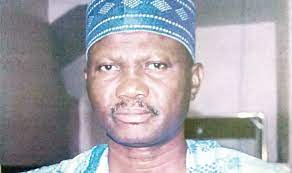The National Association of Microfinance Banks (NAMB) has advocated the need for the monetary authorities to broaden the scope of its policy steps towards improved funding of the nation’s Micro, Small and Medium Enterprises (MSMEs).
The President of the association, Mallam Yusuf Ahmed Gyallesu, who commended the Central Bank of Nigeria (CBN) for its sundry intervention initiatives to support the MSMEs over the years, said that new funds for the subsector could come in the form of interventions specifically designed and targeted at the MSMEs to be routed through MFBs.
Gyallesu, while speaking with journalists on how best the MFBs could be better funded to improve their contributions to the nation’s Gross Domestic Product (GDP) after close to two years of COVID-19 pandemic-triggered slowdown at the end of the NAMB’s 11th Annual General Meeting (AGM) in Abuja, said the apex bank could also foster linkages between the Deposit Money banks, Development banks and other Specialized Financial Institutions such that MFBs to boost MSMEs’ productivity.
He explained: “What the microfinance subsector needs now is funding to be able to support MSMEs. This funding can come in the form of interventions specifically designed and targeted at the MSMEs to be routed through MFBs.
“Another avenue is for CBN to foster linkages between the Deposit Money banks, Development banks and other Specialized Financial Institutions such that MFBs can source wholesale funds and refinancing facilities from them in order to widen their outreach and for on-lending to the MSMEs at relatively cheaper costs.
“In addition, the CBN could establish a Microfinance Sector Development Fund to provide necessary support for the development of the sub-sector in terms of refinancing facility, capacity building, and other promotional activities”, the NAMB President added.
Commenting on the recent intervention by the National Assembly which resulted in the shifting of the recapitalization deadline for the MFBs, the seasoned banker noted that “the intervention of National Assembly was timely and a welcomed move. Even though it was persuasive to CBN, it came as a reprieve to our members who are now doubling their efforts to mobilize for additional capital.”
Gyallesu also described the increasing penetration of the rural areas by mobile banking operators and agents as a welcomed development, adding that the NAMB leadership and members see the development as creating opportunities for collaborations and partnerships with the mobile money companies.
According to him, these companies have their infrastructure and need platforms with existing customer base to deploy their services, and this is where the MFBs come in.
Speaking on the NAMB’s membership verification exercise of licensed MFBs, Gyallesu, a former Managing Director of Ecobank Nigeria, disclosed that the exercise had been conducted and that the findings partly informed the NAMB decision to appeal to CBN to review the minimum recapitalization amounts downward and extend the dateline to 2025 to enable most of the weak MFBs comply accordingly.






